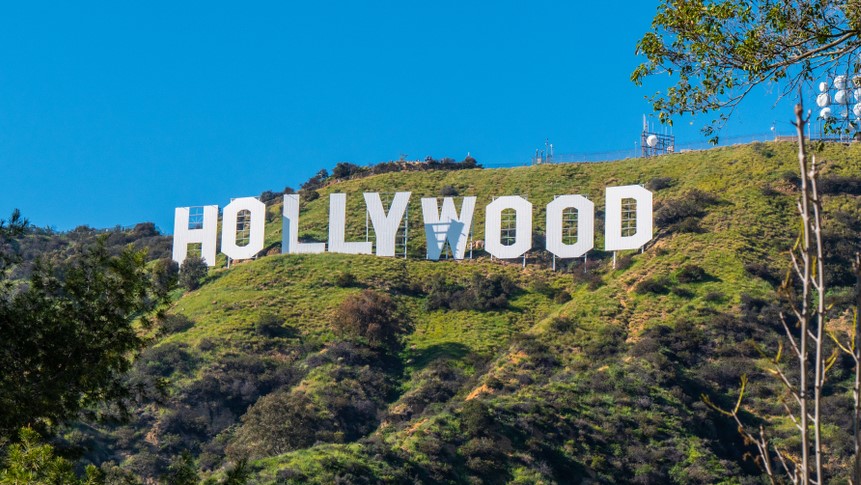Sora 2 just ran into Hollywood’s legal wall – talent agents are calling for control over AI-generated stars
CAA calls AI video-maker a ‘misuse of technology’

Sign up for breaking news, reviews, opinion, top tech deals, and more.
You are now subscribed
Your newsletter sign-up was successful
- The release of Sora 2 has led a Hollywood agency to publicly condemn OpenAI’s AI video-maker
- The agency warned that Sora 2 poses a serious threat to performers’ likeness rights and compensation
- OpenAI has begun adjusting Sora 2's parameters and hints at future guardrails and revenue sharing
OpenAI’s new Sora 2 AI video generator and immediately popular new social app have been out for a handful of days, but the company is already facing backlash from some of the most powerful people in Hollywood. Creative Artists Agency (CAA), which represents some of the biggest names in entertainment, has issued a blistering statement condemning Sora 2.
In an unsigned memo, CAA accused OpenAI of disregarding the rights of its clients and framed the issue as a moral test. The Cameo feature that lets users star in their AI-generated clips came in for particular ire, albeit not by name.
"It is clear that Open AI/Sora exposes our clients and their intellectual property to significant risk. The question is, does OpenAI and its partner companies believe that humans, writers, artists, actors, directors, producers, musicians, and athletes deserve to be compensated and credited for the work they create?" CAA wrote in the memo. "Or does Open AI believe they can just steal it, disregarding global copyright principles and blatantly dismissing creators’ rights, as well as the many people and companies who fund the production, creation, and publication of these humans’ work? In our opinion, the answer to this question is obvious."
It’s the most direct public confrontation yet between Hollywood talent and Silicon Valley’s AI experimenters. CAA’s tone is clearly meant to sound intimidating. And it makes sense as the Cameo feature shows how relatively easy it is to mimic someone's likeness and voice with only a short example clip. And then it takes only one viral AI remix to cross from fun into infringement.
AI star clash
CAA isn't alone in its stance. Rival agencies WME and UTA have released their own similarly phrased statements, with WME telling OpenAI to remove all its clients from Sora 2.
Sora 2's launch is the familiar startup approach where mistakes get made, then you fix them. The entertainment industry's approach is to cover every possible licensing, consent, and credit issue well before a single movie frame is seen. Those two approaches clash.
And OpenAI is taking heed. CEO Sam Altman himself seems to recognize that Sora 2 may have overstepped. In a cautiously worded blog post, it conceded potential issues and promised changes, potential partnerships, and monetization to come.
Sign up for breaking news, reviews, opinion, top tech deals, and more.
OpenAI seems keen to reassure the industry that Sora 2 won’t be turning Brad Pitt into a TikTok cameo without permission. The company confirmed that Cameo is supposed to give public figures control of their own likeness, requiring them to upload a Cameo and make it publicly available explicitly; otherwise, the technology should reject attempts to do so by others. If you’re a celebrity and haven’t handed over the digital keys yourself, Sora isn't supposed to let users drop you into their AI-generated videos.
For deceased public figures, their estates are able to request removal, which OpenAI says it will honor. Whether this will stave off lawsuits is unclear, however. The system leans heavily on individuals to set permissions. And that's not enough for some. The Motion Picture Association has bluntly warned OpenAI that it is the AI company's responsibility to prevent copyright violations.
Even with controls in place, there’s a haziness around lookalikes, deepfakes that are legally distinct but might feel too close for comfort. And skepticism has only deepened in recent months as AI-generated videos of deceased celebrities like Robin Williams and Gene Wilder have gone viral, often crossing emotional boundaries for fans and families alike.
Sora’s apparent openness to estate requests gestures toward making up for that, but it still leaves the door open to bad actors who won’t bother asking permission. The fallout around all of these issues will likely dictate how future consumer AI video tools operate. CAA’s memo points toward a willingness to make AI videos with celebrities possible, as long as the right rules and compensation are in place.
"Control, permission for use, and compensation is a fundamental right of these workers," CAA wrote. "Anything less than the protection of creators and their rights is unacceptable."
Follow TechRadar on Google News and add us as a preferred source to get our expert news, reviews, and opinion in your feeds. Make sure to click the Follow button!
And of course you can also follow TechRadar on TikTok for news, reviews, unboxings in video form, and get regular updates from us on WhatsApp too.
You might also like

Eric Hal Schwartz is a freelance writer for TechRadar with more than 15 years of experience covering the intersection of the world and technology. For the last five years, he served as head writer for Voicebot.ai and was on the leading edge of reporting on generative AI and large language models. He's since become an expert on the products of generative AI models, such as OpenAI’s ChatGPT, Anthropic’s Claude, Google Gemini, and every other synthetic media tool. His experience runs the gamut of media, including print, digital, broadcast, and live events. Now, he's continuing to tell the stories people want and need to hear about the rapidly evolving AI space and its impact on their lives. Eric is based in New York City.
You must confirm your public display name before commenting
Please logout and then login again, you will then be prompted to enter your display name.